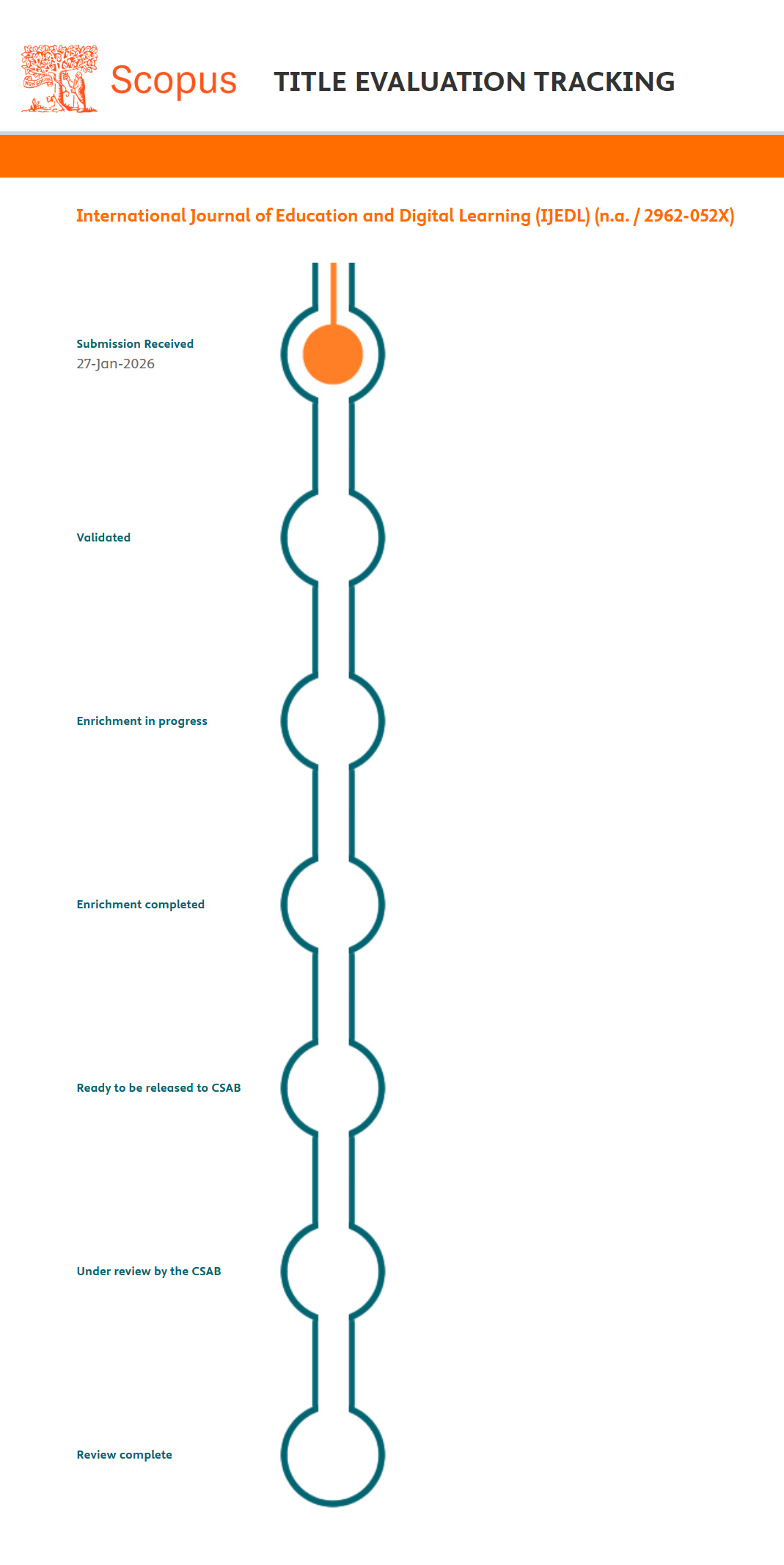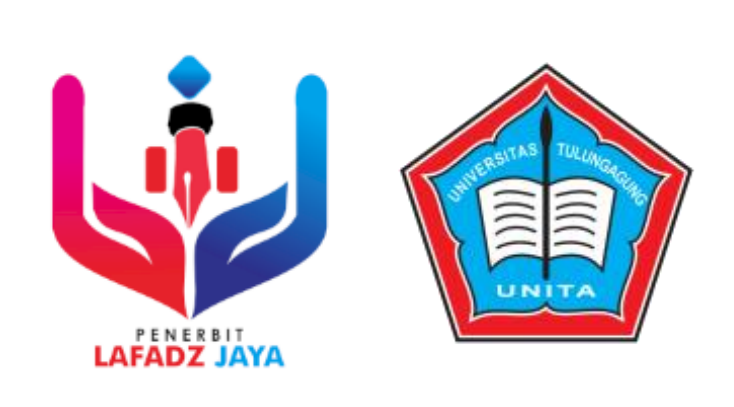Analyzing Growth Mindset Based on Opportunity to Learn in Project-Based Manipulative and Virtual Learning Media Courses
DOI:
https://doi.org/10.47353/ijedl.v3i5.306Keywords:
Growth Mindset, Opportunity to Learn, Project-Based Learning, Manipulative Learning Media, Virtual Learning MediaAbstract
This study investigates how opportunity to learn (OTL) in project-based mathematics education courses—Manipulative Learning Media (MLM) and Virtual Learning Media (VLM)—supports the development of a growth mindset among pre-service teachers. MLM is a compulsory course focusing on concrete instructional media, while VLM is elective and centers on digital tools. Both apply structured learning cycles involving media design, classroom implementation, revision, and reflection. Using a quantitative comparative approach, data were collected from 85 mathematics education students grouped by course enrollment. Growth mindset and OTL were measured using Likert-scale questionnaires and analyzed with descriptive statistics, t-tests, and Pearson correlation. Results showed that the MLM+VLM group reported slightly higher growth mindset scores (M = 3.54) than the MLM-only group (M = 3.47), though the difference was not significant (p = 0.483). However, OTL scores approached significance (p = 0.054), and a positive correlation was found between OTL and growth mindset (r = 0.642). These findings highlight the value of structured, project-based learning environments in enhancing students’ learning beliefs and instructional readiness.
Downloads
References
Alrajeh, T. S. (2021). Project-based Learning to Enhance Pre-service Teachers’ Teaching Skills in Science Education. Universal Journal of Educational Research, 9(2), 271–279. https://doi.org/10.13189/ujer.2021.090202
Annetta, L. A., Lamb, R., Vallett, D., & Shapiro, M. (2018). Project-Based Learning Progressions: Identifying the Nodes of Learning in a Project-Based Environment. In Contemporary Technologies in Education (pp. 163–181). Springer International Publishing. https://doi.org/10.1007/978-3-319-89680-9_9
Baier, F., Decker, A.-T., Voss, T., Kleickmann, T., Klusmann, U., & Kunter, M. (2019). What makes a good teacher? The relative importance of mathematics teachers’ cognitive ability, personality, knowledge, beliefs, and motivation for instructional quality. British Journal of Educational Psychology, 89(4), 767–786. https://doi.org/10.1111/bjep.12256
C, P. B., Soloway, E., Marx, R. W., Krajcik, J. S., Guzdial, M., & Palincsar, A. (1991). Motivating Project Based Learning: Sustaining the Doing, Supporting thr Learning. In Educational Psychologist (Vol. 26, Issues 3 & 4, pp. 369–398).
Cogan, L. S., & Schmidt, W. H. (2015). The concept of opportunity to learn (OTL) in international comparisons of education. In Assessing mathematical literacy (pp. 207–216). Springer.
Denuga, D. D., & Nkengbeza, D. (2022). Pre-Service Teachers Experience in Project-Based Learning Approach: A Case Study of Two Campuses of the University of A (UNA). Open Journal of Social Sciences, 10(04), 121–132. https://doi.org/10.4236/jss.2022.104009
Dweck, C. S. (2006). The New Psychology of Success. In Random House.
Elliott, S. N., Kurz, A., Tindal, G., & Yel, N. (2017). Influence of Opportunity to Learn Indices and Education Status on Students’ Mathematics Achievement Growth. Remedial and Special Education, 38(3), 145–158. https://doi.org/10.1177/0741932516663000
Flanagan, A. M., Cormier, D. C., & Bulut, O. (2020). Achievement may be rooted in teacher expectations: examining the differential influences of ethnicity, years of teaching, and classroom behaviour. Social Psychology of Education, 23, 1429–1448. https://doi.org/10.1007/s11218-020-09590-y
Geier, R., Blumenfeld, P. C., Marx, R. W., Krajcik, J. S., Fishman, B., Soloway, E., & Clay-Chambers, J. (2008). Standardized test outcomes for students engaged in inquiry-based science curricula in the context of urban reform. Journal of Research in Science Teaching, 45(8), 922–939. https://doi.org/10.1002/tea.20248
Kaldi, S., & Zafeiri, S. (2023). Identifying reflective modes in pre-service teachers’ written reflections on the implementation of project-based learning during the school practicum. Frontiers in Education, 7(February), 1–13. https://doi.org/10.3389/feduc.2022.1072090
Kurz, A. (2011). Access to What Should Be Taught and Will Be Tested: Students’ Opportunity to Learn the Intended Curriculum (S. N. Elliott, R. J. Kettler, P. A. Beddow, & A. Kurz, Eds.; Handbook o).
Megawanti, P., Supriyati, Y., & Tjalla, A. (2024). Development of mathematical mindset scale for mathematics education students. International Journal of Evaluation and Research in Education , 13(4), 2139–2147. https://doi.org/10.11591/ijere.v13i4.27845
Nasrullah, N., & Bachtiar, Muh. Y. (2021). Inovasi Pembelajaran Daring dan Dampak Bagi PAUD Selama Pandemi Covid-19. Jurnal Obsesi : Jurnal Pendidikan Anak Usia Dini, 6(2), 1007–1019. https://doi.org/10.31004/obsesi.v6i2.1411
Ortiz, E., Eisenreich, H., & Tapp, L. (2019). Physical and Virtual Manipulative Framework Conceptions of Undergraduate Pre-service Teachers. International Journal for Mathematics Teaching and Learning, 20(1), 62–84. https://doi.org/10.4256/ijmtl.v20i1.116
Ruslan, R., Alimuddin, A., & Nasrullah, N. (2018). Developing Alternative Assessment of Mathematical Performance for Vocational Students. Innovation of Vocational Technology Education, 14(1), 32. https://doi.org/10.17509/invotec.v14i1.11045
Saubern, R., Urbach, D., Koehler, M., & Phillips, M. (2020). Describing increasing proficiency in teachers’ knowledge of the effective use of digital technology. Computers & Education, 103784. https://doi.org/10.1016/j.compedu.2019.103784
Setiawan, R., Indradewi, R. S., & Zainul, R. (2024). Development of growth mindset in higher education in support of the World-Class University. International Journal of Evaluation and Research in Education, 13(6), 3806–3817. https://doi.org/10.11591/ijere.v13i6.30145
She, H. C., Stacey, K., & Schmidt, W. H. (2018). Science and Mathematics Literacy: PISA for Better School Education. In International Journal of Science and Mathematics Education (Vol. 16, pp. 1–5). Springer Science and Business Media LLC. https://doi.org/10.1007/s10763-018-9911-1
Song, D., Kim, P., & Karim, A. (2012). SMILE in science classroom. The Annual Convention of the Association for Educational Communications and Technology, 386–392. http://aectorg.yourwebhosting.com/publications/proceedings/2012.asp
Ummah, S. K., Inam, A., & Azmi, R. D. (2019). Creating manipulatives: Improving students’ creativity through project-based learning. Journal on Mathematics Education, 10(1), 93–102. https://doi.org/10.22342/jme.10.1.5093.93-102
Wouters, P., van Nimwegen, C., van Oostendorp, H., & van Der Spek, E. D. (2013). A meta-analysis of the cognitive and motivational effects of serious games. Journal of Educational Psychology, 105(2), 249–265. https://doi.org/10.1037/a0031311
Wulandari, T. C., & Qamar, K. (2018). Project-Based Learning: Road to Make Connection between Concept and Skills in Mathematics Manipulative Media. Mathematics Education Journal, 2(1), 19. https://doi.org/10.22219/mej.v2i1.5798
Yeager, D. S., Hanselman, P., Walton, G. M., Murray, J. S., Crosnoe, R., Muller, C., Tipton, E., Schneider, B., Hulleman, C. S., Hinojosa, C. P., Paunesku, D., Romero, C., Flint, K., Roberts, A., Trott, J., Iachan, R., Buontempo, J., Yang, S. M., Carvalho, C. M., … Dweck, C. S. (2019). A national experiment reveals where a growth mindset improves achievement. Nature, 573(7774), 364–369. https://doi.org/10.1038/s41586-019-1466-y
Zhang, J., Cogan, L. S., & Schmidt, W. H. (2019). Measuring Textbook Content Coverage: Efficient Content Analysis with Lesson Sampling. In Educational Measurement: Issues and Practice (Vol. 39, Issue 2, pp. 74–84). Wiley. https://doi.org/10.1111/emip.12300
Downloads
Published
How to Cite
Issue
Section
License
Copyright (c) 2025 Nasrullah, Nurdin Arsyad, Alimuddin

This work is licensed under a Creative Commons Attribution-ShareAlike 4.0 International License.












